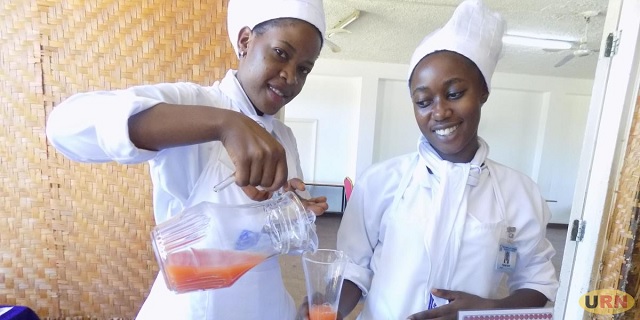
Kampala, Uganda | THE INDEPENDENT | Catering providers have to meet the Ugandan standards when construction of the East Africa Crude Oil pipeline Projects begins.
Catering services are part of the 65 million dollar deals to be offered by China Petroleum Pipeline Engineering Company Ltd (CPP), the company contracted to construct the crude oil pipeline from Hoima to the port of Tanga in Tanzania.
While China Petroleum Pipeline Engineering Company Ltd (CPP) has cited standards from other jurisdictions like the European Union among others, the Uganda Bureau of Standards (UBOS) urges Uganda catering firms to ensure that they meet Ugandan standards.
Hakim Mufumbiro, the head of food and Agricultural standards at UNBS only catering firms that meet the Ugandan standards will be cleared for the award of tenders to the six construction camps on the Ugandan side of the EACOP.
Mufumbiro was on Friday addressing the Supplier Development forum for potential suppliers of catering and camp management at the Kampala Sheraton Hotel.
He clarified that the instance on the Ugandan standards does not mean that they are inferior to other standards related to catering services in the oil and gas sector.
“In Uganda, and I’m using in Uganda because the oil and gas sector is not anywhere else but in Uganda. The standards that apply to anything are Uganda’s standards as a starting point. We don’t go away from the Ugandan standards because standards are universal” he said.
The law ring fences specific goods and services to be provided only by Ugandan companies, businesses or individuals (citizens).
These include transportation, security, foods and beverages, hotel accommodation and catering, human resource management, office supplies, fuel supply, land surveying, clearing and forwarding, crane hire, locally available construction materials, civil works, supply of locally available drilling and production materials, environment studies and impact assessment, communications and information technology services, waste management, where possible.
So, players in the hotel sector either those based in the Albertine region or those in any part of Uganda could qualify to offer those services to the EACOP camps when construction takes off in the first quarter of 2024. In the past, indigenous service providers like Mineral Services Limited (MSL), GCC Services Limited, and Newrest UIS have been subcontracted to supply camps in the Tilenga and Kingfisher projects.
Mufumbiro explained that any of the products or services that are going to be supplied in the oil and gas sector will first meet Ugandan standards.
While Uganda has everything needed in terms of food and beverages needed for catering services in the oil and gas sector, providers will need to adhere to the set standards.
“We only have to get to the level of applying the necessary standards which are available. One of the key functions that the standards apply is our ability to test and confirm that the products meet the standards” said Mufumbiro.
He for example said if they have set a standard that there will be no aflatoxins in maize, they have to test and confirm that there is no aflatoxin in maize. “Or there are no veterinary drug residues in meat or there are no pesticide residues in fruits and vegetables”
Part of the requirements include the need to ensure that workers are dressed in Personal Protective Equipment during the food production process.
Workers should be availed of regularly cleaned rest rooms, changing rooms, and training required for quality. It is also a requirement that workers must undergo regular medical checkups and have health records kept.
Why standards in catering?
It is an international practice that food and water safety should be adhered to for the effective functioning of the oil and gas industry.
It is further observed that diseases related to food and water are major contributors to project illnesses and can have significant and adverse impacts on workforce productivity, particularly during large-scale construction phases of a project.
The risk of food and water-related illness can be increased by improper handling and inadequate temperature control of food, stored or prepared in advance and in large quantities. Hakim Mufumbiro notes that foodborne diseases are prevalent in the catering sector.
“Anyone of you who has been in some of these establishments, you have probably gone home and not had a good experience after that. It’s because there might have been some contamination somewhere” he said. He emphasized that the safety of the food being served is of paramount importance.
“You only start by producing safe food before you go into supplying the food. If there is no safe food, there is no food at the end of the day,” he emphasized.
According to Mufumbiro, he has discovered that it is easier for one offering a service to implement a standard than one producing a standard.
However in some regulations in the sector, the standards go beyond the safety of the food and provide the safety of the employees as required by the lenders to the sector. For example, in most operations, providers have to adhere to rules governing the safe management of catering workplaces.
*****
URN
 The Independent Uganda: You get the Truth we Pay the Price
The Independent Uganda: You get the Truth we Pay the Price


